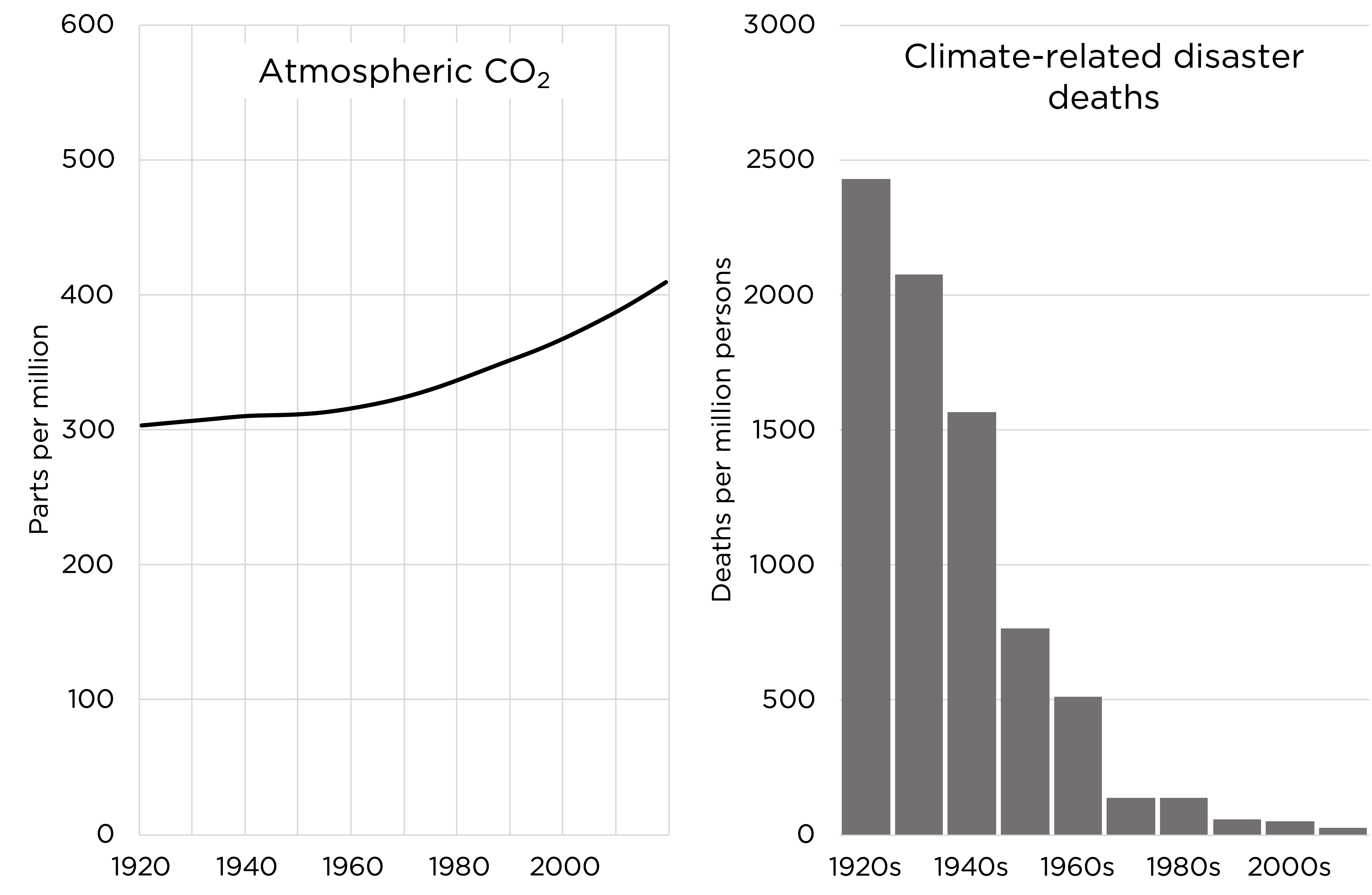Quick Summary
-
Our Constitution says that “Congress shall make no law…abridging the freedom of speech.” This applies to all of us, including oil company execs. And yet Congress today is holding a hearing aimed at punishing “Big Oil” for expressing opinions that politicians disagree with.1
-
The House Committee on Oversight and Reform hearing “Exposing Big Oil’s Disinformation Campaign” legitimizes itself based on the idea that Exxon and others funded groups skeptical of climate catastrophe. But Exxon’s owners and operators had every right to do that.
-
The government has no right to interrogate oil companies unless it has evidence that they are committing fraud by concealing or fabricating evidence. In the case of the climate impact of CO2, this is impossible--because all the evidence is in the public domain.
-
There is a fundamental distinction in civilized society between fraud and opinion. By calling dissenting opinions fraud, Congress is trying to make independent thought a crime. To do this in the name of science is obscene.
-
Science thrives on the open, competitive exchange of evidence and arguments--not of suppressing dissenters. True scientists can win on the competitive market of ideas. Only those with fallacious conclusions are desperate for government to descend on their opponents.
-
While it is assumed that Exxon and others have been proven wrong after expressing or funding opinions that fossil fuels’ CO2 emissions would not be catastrophic, they have been proven right. Observe the rapid decline in climate-related disaster deaths.2

-
The truth about fossil fuels and climate is that fossil fuels have emitted CO2 that has contributed to some warming as well as significant greening. Most importantly, fossil fuels have produced and powered the infrastructure that keeps us safer from climate than ever.
-
While Exxon and others were expressing the opinion that CO2 emissions would cause non-catastrophic warming, many of today’s “experts,” such as @BarackObama’s top science advisor John Holdren, falsely predicted catastrophic levels of climate death.\
https://twitter.com/alexepstein/status/1408847549092433923
-
The farce of Congress threatening oil executives for expressing opinions challenging climate catastrophe that turned out to be accurate illustrates why free speech is so important in science. Those with false views like to use government to suppress dissent. Remember Galileo?
-
Newton didn’t need to suppress dissenters to advance his laws of motion and Einstein didn’t need to suppress dissenters to advance his theories of relativity. But opponents of heliocentrism needed to suppress Galileo. And climate catastrophists need to suppress climate thinkers
In 2016, Massachusetts tried to subpoena emails between me and Exxon about questioning climate catastrophe. These did not exist, but the government had no right to even ask. In defense of my rights, here’s how I responded. I wish someone from the oil industry would also stand up to defend their right to free speech, which must include sharing and supporting opinions that the government regards as “disinformation.”
References
-
House Committee on Oversight and Reform hearing “Fueling the Climate Crisis: Exposing Big Oil’s Disinformation Campaign to Prevent Climate Action”↩
-
For every million people on earth, annual deaths from climate-related causes (extreme temperature, drought, flood, storms, wildfires) declined 98%—from an average of 247 per year during the 1920s to 2.5 in per year during the 2010s.
Data on disaster deaths come from EM-DAT, CRED / UCLouvain, Brussels, Belgium – www.emdat.be (D. Guha-Sapir).
Population estimates for the 1920s from the Maddison Database 2010, Groningen Growth and Development Centre, Faculty of Economics and Business at University of Groningen. For years not shown, the population is assumed to have grown at a steady rate.
Latest population estimates from World Bank Data.
Bjorn Lomborg - Welfare in the 21st century: Increasing development, reducing inequality, the impact of climate change, and the cost of climate policies↩
